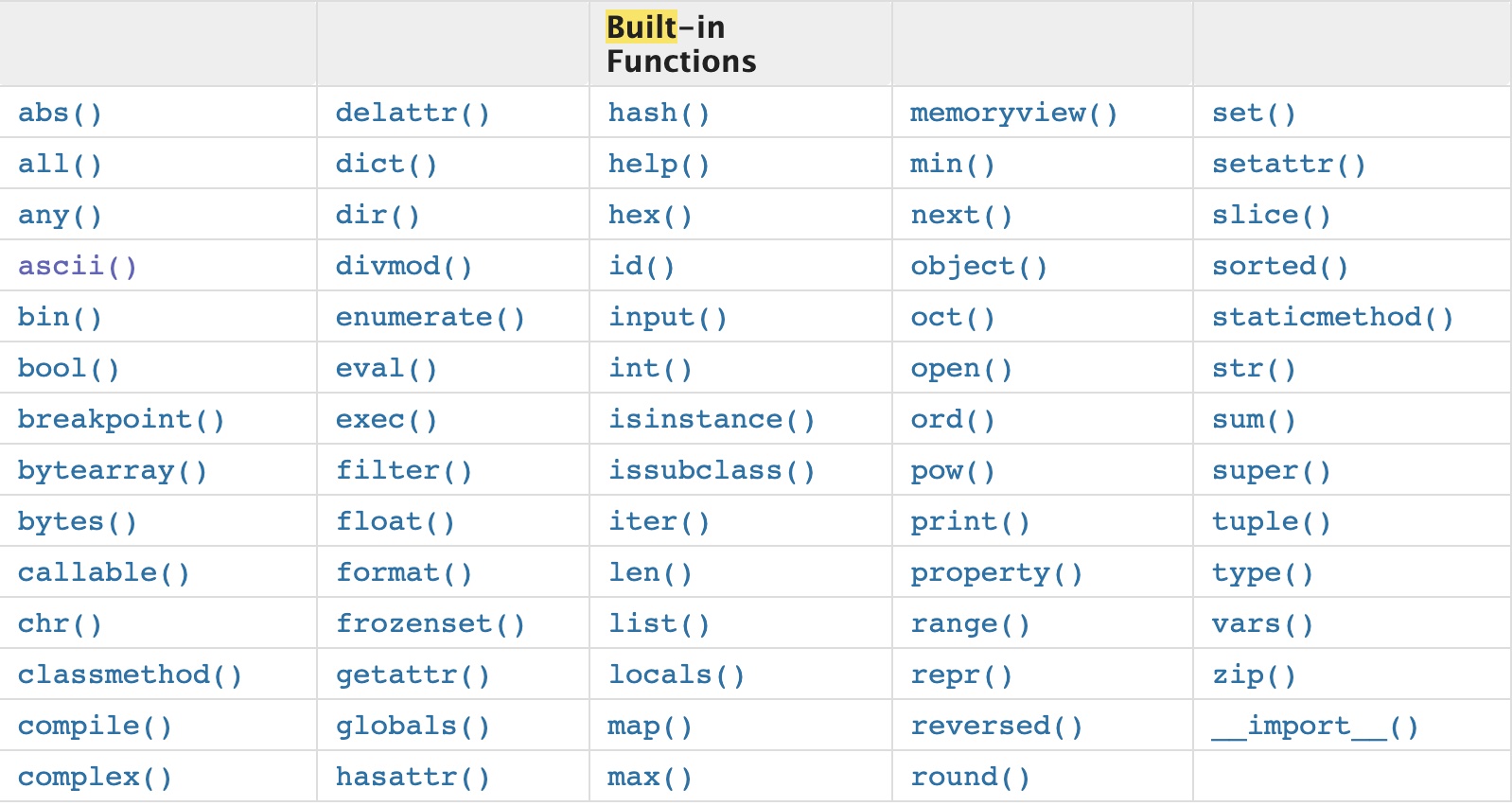匿名函数与内置函数
目录
匿名函数
有名函数
定义的函数基于函数名使用
def func():
print('from func')
func()
from func
匿名函数
没有绑定名字,使用一次即被收回,加括号就可以运行
lambda关键字
语法:lambda x,y:x+y
res = (lambda x,y:x+y)(1,2)
print(res)
3
与内置函数联用
匿名函数通常与max()、sorted()、map()、filter()方法联用。
max()
取最大值
salary_dict = {
'nick': 3000,
'jason': 100000,
'tank': 5000,
'sean': 2000
}
print(max(salary_dict)) # 只是从key中比较大小
def func(k):
return salary_dict[k]
print(max(salary_dict,key=func)) # 会比较key对应的value值,返回最大的key
tank
jason
sorted()
从小到大排序
lis = [1, 3, 2, 5, 8, 6]
sorted(lis)
print(lis)
print(sorted(lis))
[1, 3, 2, 5, 8, 6]
[1, 2, 3, 5, 6, 8]
salary_dict = {
'nick': 3000,
'jason': 100000,
'tank': 5000,
'sean': 2000
}
print(sorted(salary_dict,key=lambda name:salary_dict[name]))
['sean', 'nick', 'tank', 'jason']
map()
映射
name_list = ['jason', 'tank', 'sean']
res = map(lambda name: f"{name} sb", name_list)
print(f"list(res): {list(res)}")
list(res): ['jason sb', 'tank sb', 'sean sb']
filter()
过滤
name_list = ['nick', 'jason sb', 'tank sb', 'sean sb']
filter_res = filter(lambda name: name.endswith('sb'), name_list)
print(f"list(filter_res): {list(filter_res)}")
list(filter_res): ['jason sb', 'tank sb', 'sean sb']
内置函数

更多内置函数:https://docs.python.org/3/library/functions.html?highlight=built#ascii
bytes()
解码字符
res = '你好'.encode('utf8')
print(res)
b'\xe4\xbd\xa0\xe5\xa5\xbd'
res = bytes('你好', encoding='utf8')
print(res)
b'\xe4\xbd\xa0\xe5\xa5\xbd'
chr()/ord()
chr()参考ASCII码表将数字转换成对应字符;ord()将字符转换成对应的数字
print(chr(65))
print(ord('A'))
A
65
divmod()
分栏
print(divmod(10,3))
(3,1)
enumerate()
带有索引的迭代
l = ['a', 'b', 'c']
for i in enumerate(l):
print(i)
(0, 'a')
(1, 'b')
(2, 'c')
eval()
把字符串翻译成数据类型
lis = '[1,2,3]'
lis_eval = eval(lis)
print(lis_eval)
[1, 2, 3]
hash()
是否可哈希
print(hash(1))
1

